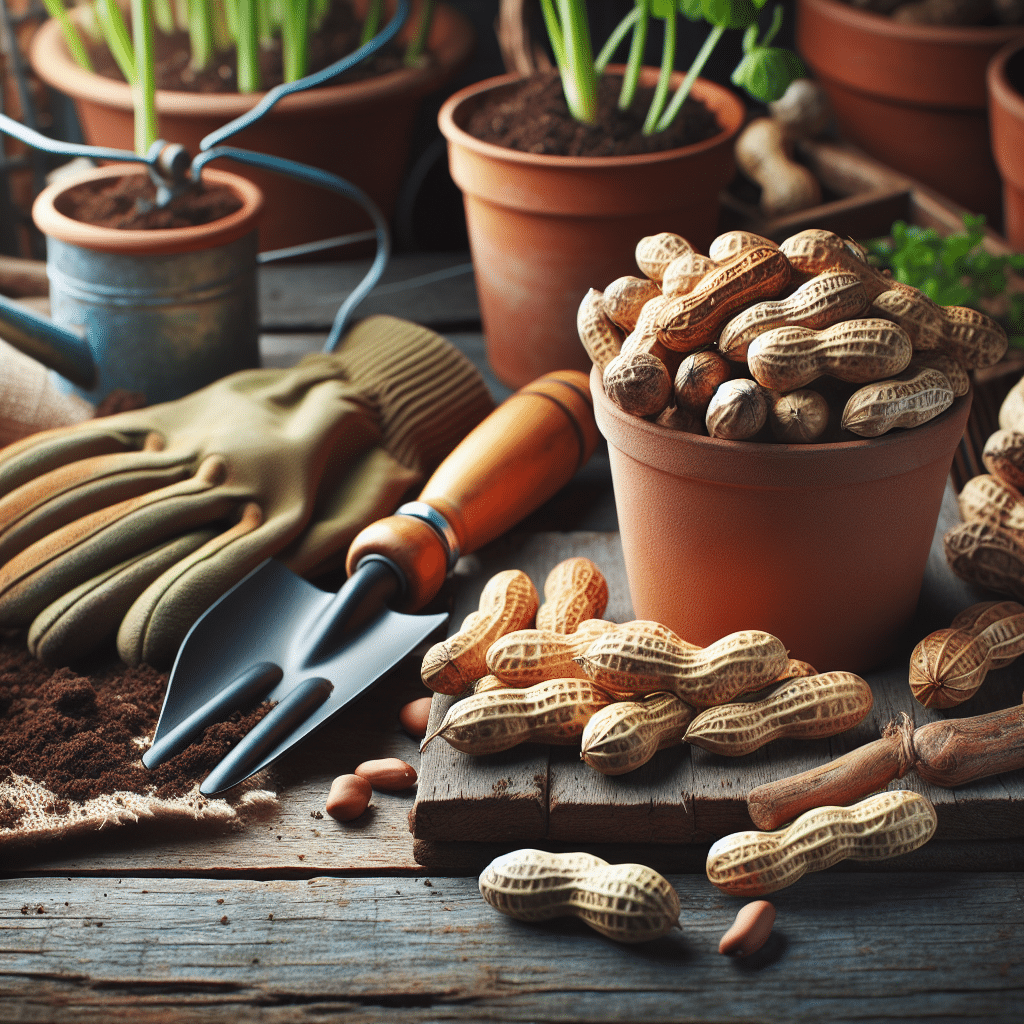Seeds Insight: Peanut Beans for Gardening
-
Table of Contents
- Peanut Beans for Gardening: A Comprehensive Guide
- Understanding Peanut Beans
- The Botany of Peanuts
- Climate and Soil Requirements for Peanut Cultivation
- Planting and Growing Peanuts in Your Garden
- Pest and Disease Management in Peanut Cultivation
- Benefits of Growing Peanuts
- Harvesting and Storing Peanuts
- Using Peanuts in Culinary Applications
- Case Studies: Success Stories in Peanut Cultivation
- Statistics: The Global Impact of Peanut Production
- Conclusion: Embracing Peanut Beans in Your Garden
- Discover ETprotein’s High-Quality Protein Products
Peanut Beans for Gardening: A Comprehensive Guide

Gardening enthusiasts and agriculturalists alike often seek to diversify their crops and experiment with different types of seeds. Among the various options, peanut beans, also known simply as peanuts, offer a unique and rewarding gardening experience. This article delves into the world of peanut beans, providing insights into their cultivation, benefits, and uses in gardening.
Understanding Peanut Beans
Peanuts (Arachis hypogaea) are a legume crop grown primarily for their edible seeds. Contrary to popular belief, peanuts are not true nuts but are related to beans and lentils. Originating in South America, peanuts have become a staple crop in many parts of the world due to their nutritional value and versatility.
The Botany of Peanuts
Peanuts are fascinating plants with a unique growth process. After pollination, the peanut plant’s flowers fade, and the ovary begins to grow and elongate. This structure, called a peg, grows down into the soil where the peanut actually develops underground. This characteristic distinguishes peanuts from most other seed plants.
Climate and Soil Requirements for Peanut Cultivation
Peanuts thrive in warm climates with well-drained soil. They require a long growing season and are sensitive to frost. The ideal soil for peanut cultivation is sandy loam with a pH between 5.9 and 7.0. Good soil aeration is crucial for the development of peanut pods.
Planting and Growing Peanuts in Your Garden
Planting peanuts in your garden can be a rewarding endeavor. Here’s a step-by-step guide to help you get started:
- Seed Selection: Choose high-quality, disease-free seeds from a reputable source.
- Planting Time: Plant peanuts after the last frost when the soil has warmed up.
- Soil Preparation: Prepare the soil by tilling and adding organic matter if necessary.
- Planting Depth: Sow seeds 1 to 1½ inches deep, spaced about 6 to 8 inches apart.
- Watering: Water the plants regularly, but avoid overwatering to prevent rot.
- Weeding: Keep the garden bed free of weeds that can compete with the peanut plants.
- Harvesting: Peanuts are ready to harvest when the leaves turn yellow and the inner shells have a gold-brown color.
Pest and Disease Management in Peanut Cultivation
Peanuts can be susceptible to various pests and diseases. Common issues include leaf spot, root rot, and pests like the corn earworm. Integrated pest management strategies, such as crop rotation, using resistant varieties, and biological control, can help manage these challenges.
Benefits of Growing Peanuts
Growing peanuts in your garden offers several benefits:
- Nutritional Value: Peanuts are rich in protein, healthy fats, vitamins, and minerals.
- Soil Health: As legumes, peanuts can fix nitrogen in the soil, improving its fertility.
- Economic Value: Peanuts can be a profitable crop due to their demand in various industries.
Harvesting and Storing Peanuts
Proper harvesting and storage are essential to maintain the quality of peanuts. Harvest peanuts when they are mature, and dry them properly before storage. Store peanuts in a cool, dry place to prevent mold and spoilage.
Using Peanuts in Culinary Applications
Peanuts are incredibly versatile in the kitchen. They can be used in a variety of dishes, from savory to sweet. Peanuts can be roasted, boiled, made into peanut butter, or used as an ingredient in recipes like stir-fries, salads, and desserts.
Case Studies: Success Stories in Peanut Cultivation
There are numerous success stories of individuals and communities thriving through peanut cultivation. For instance, peanut farming has been a significant source of income for many families in developing countries, contributing to economic development and food security.
Statistics: The Global Impact of Peanut Production
Peanuts are a global commodity with significant economic impact. According to the Food and Agriculture Organization (FAO), millions of tons of peanuts are produced annually, with China, India, and the United States being the top producers.
Conclusion: Embracing Peanut Beans in Your Garden
Growing peanut beans in your garden can be a fulfilling and beneficial practice. With proper care and management, you can enjoy a bountiful harvest of peanuts that offer nutritional, economic, and environmental advantages.
Discover ETprotein’s High-Quality Protein Products
If you’re interested in incorporating more plant-based proteins into your diet, consider exploring ETprotein’s range of products. Their peanut protein is just one of the many high-quality, organic options they offer to consumers seeking healthy and sustainable protein sources.
About ETprotein:
ETprotein, a reputable peanut protein Chinese factory manufacturer and supplier, is renowned for producing, stocking, exporting, and delivering the highest quality organic bulk vegan protein and plant proteins. They include Organic rice protein, clear rice protein, pea protein, clear pea protein, pumpkin seed protein, sunflower seed protein, mung bean protein, peanut protein etc. Their offerings, characterized by a neutral taste, non-GMO, allergen-free attributes, cater to a diverse range of industries. They serve nutraceutical, pharmaceutical, cosmeceutical, veterinary, as well as food and beverage finished product distributors, traders, and manufacturers across Europe, USA, Canada, Australia, Thailand, Japan, Korea, Brazil, and Chile, among others.
ETprotein specialization includes exporting and delivering tailor-made protein powder and finished nutritional supplements. Their extensive product range covers sectors like Food and Beverage, Sports Nutrition, Weight Management, Dietary Supplements, Health and Wellness Products, and Infant Formula, ensuring comprehensive solutions to meet all your protein needs.
As a trusted company by leading global food and beverage brands and Fortune 500 companies, ETprotein reinforces China’s reputation in the global arena. For more information or to sample their products, please contact them and email sales(at)ETprotein.com today.












